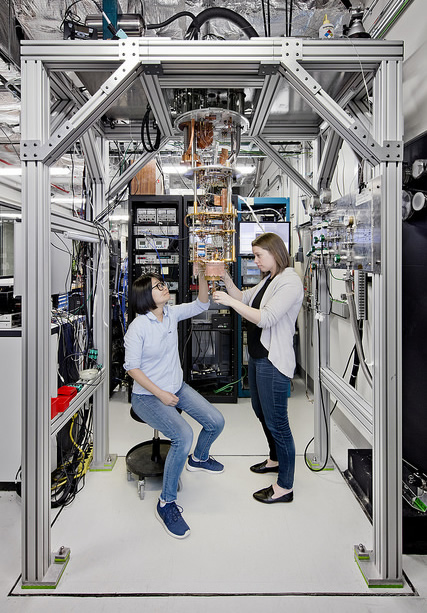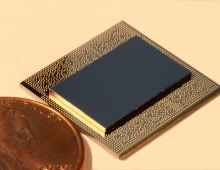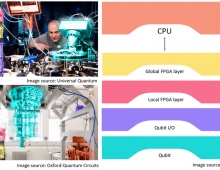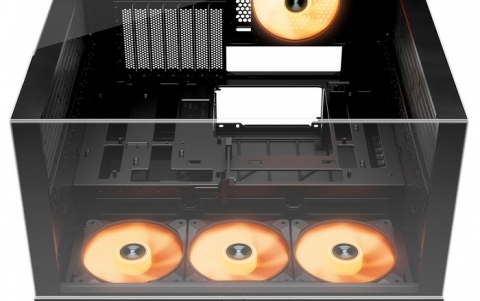
IBM Building First Universal Quantum Computers
IBM will build commercially available universal quantum computing systems. The "IBM Q" quantum systems and services will be delivered via the IBM Cloud platform and will be designed to tackle problems that are too complex and exponential in nature for classical computing systems to handle.
One of the first and most promising applications for quantum computing will be in the area of chemistry and could lead to the discovery of new medicines and materials. IBM aims at constructing commercial IBM Q systems with ~50 qubits in the next few years to demonstrate capabilities beyond today's classical systems, and plans to collaborate with key industry partners to develop applications that exploit the quantum speedup of the systems.
Through the IBM Quantum Experience, an online community forum, anyone is able to connect to IBM's quantum processor via the IBM Cloud, run algorithms and experiments, work with the individual quantum bits, and explore tutorials and simulations around what might be possible with quantum computing.

IBM released an simulator on the IBM Quantum Experience that can model circuits with up to 20 qubits. In the first half of 2017, IBM plans to release a full SDK (Software Development Kit) on the IBM Quantum Experience for users to build simple quantum applications and software programs.
IBM also announced today the release of a new API (Application Program Interface) for the IBM Quantum Experience that enables developers and programmers to begin building interfaces between its existing five quantum bit (qubit) cloud-based quantum computer and classical computers, without needing a deep background in quantum physics.
IBM intends to build IBM Q systems to expand the application domain of quantum computing. A key metric will be the power of a quantum computer expressed by the "Quantum Volume", which includes the number of qubits, quality of quantum operations, qubit connectivity and parallelism. As a first step to increase Quantum Volume, IBM aims at constructing commercial IBM Q systems with ~50 qubits in the next few years to demonstrate capabilities beyond today's classical systems, and plans to collaborate with key industry partners to develop applications that exploit the quantum speedup of the systems.
IBM's scientists have developed techniques to efficiently explore the simulation of chemistry problems on quantum processors (https://arxiv.org/abs/1701.08213 and https://arxiv.org/abs/1612.02058) and experimental demonstrations of various molecules are in progress. In the future, the goal will be to scale to even more complex molecules and try to predict chemical properties with higher precision than possible with classical computers.
Besides chemistry, future applications of quantum computing may include the finding the optimal path across global systems of systems for ultra-efficient logistics and supply chains; finding new ways to model financial data and isolating key global risk factors to make better investments; making facets of artificial intelligence such as machine learning much more powerful when data sets can be too big such as searching images or video; or making cloud computing more secure by using the laws of quantum physics to enhance private data safety.
IBM will leverage its deep in superconducting qubits, complex high performance system integration, and scalable nanofabrication processes from the semiconductor industry to help advance the quantum mechanical capabilities.
Since its launch less than a year ago, about 40,000 users have run over 275,000 experiments on the IBM Quantum Experience. It has become an enablement tool for scientists in over 100 countries and, to date, 15 third-party research papers have been posted to arXiv with five published in leading journals based on experiments run on the Quantum Experience.
IBM has worked with academic institutions, such as MIT, the Institute for Quantum Computing at the University of Waterloo, and Ecole polytechnique federale de Lausanne (EPFL) to leverage the IBM Quantum Experience as an educational tool for students. In collaboration with the European Physical Society, IBM Research - Zurich recently hosted students for a full-day workshop to learn how to experiment with qubits using the IBM Quantum Experience.





















